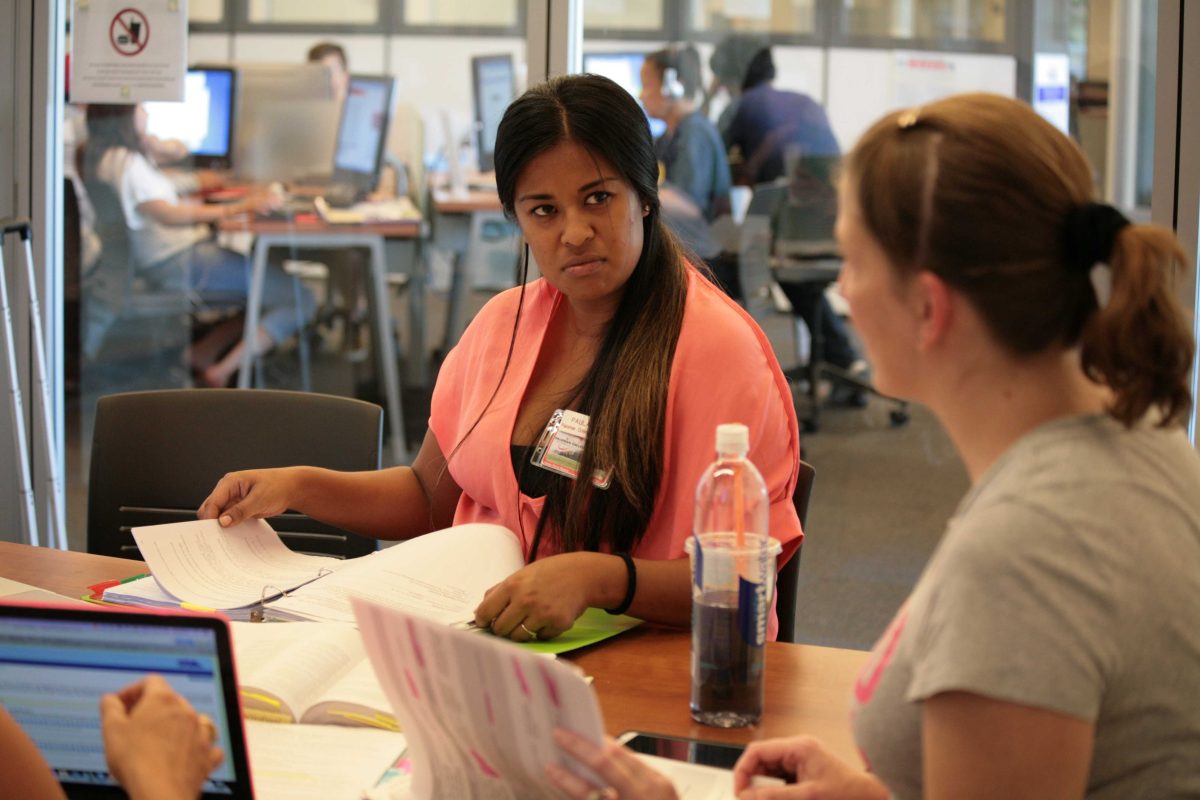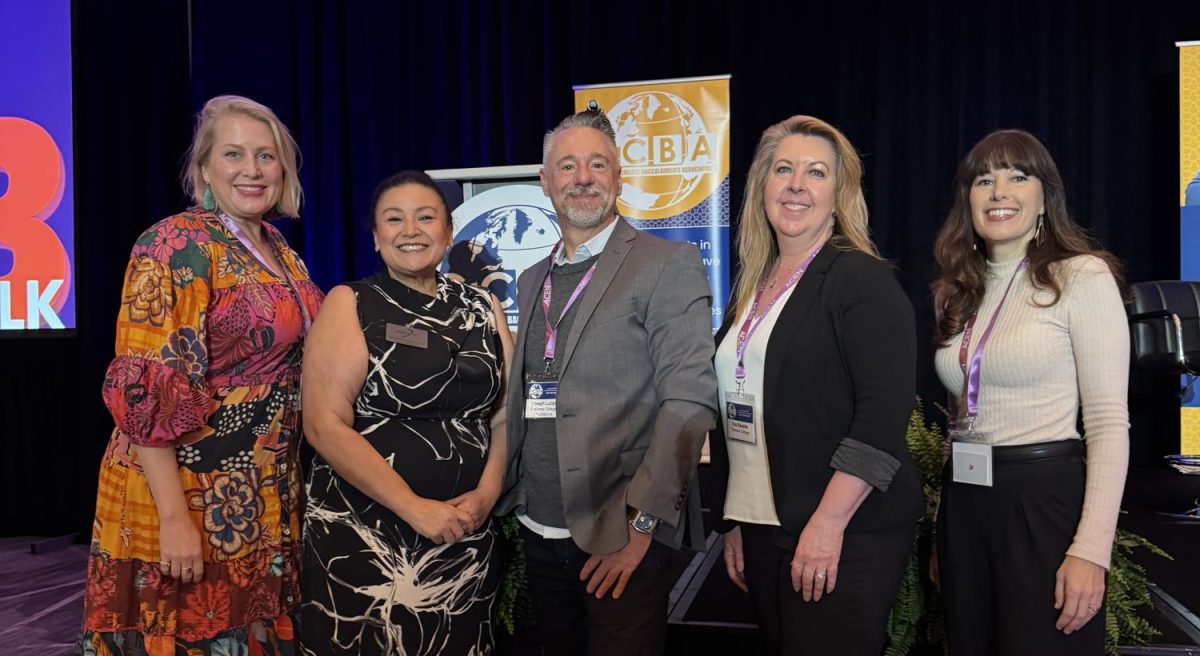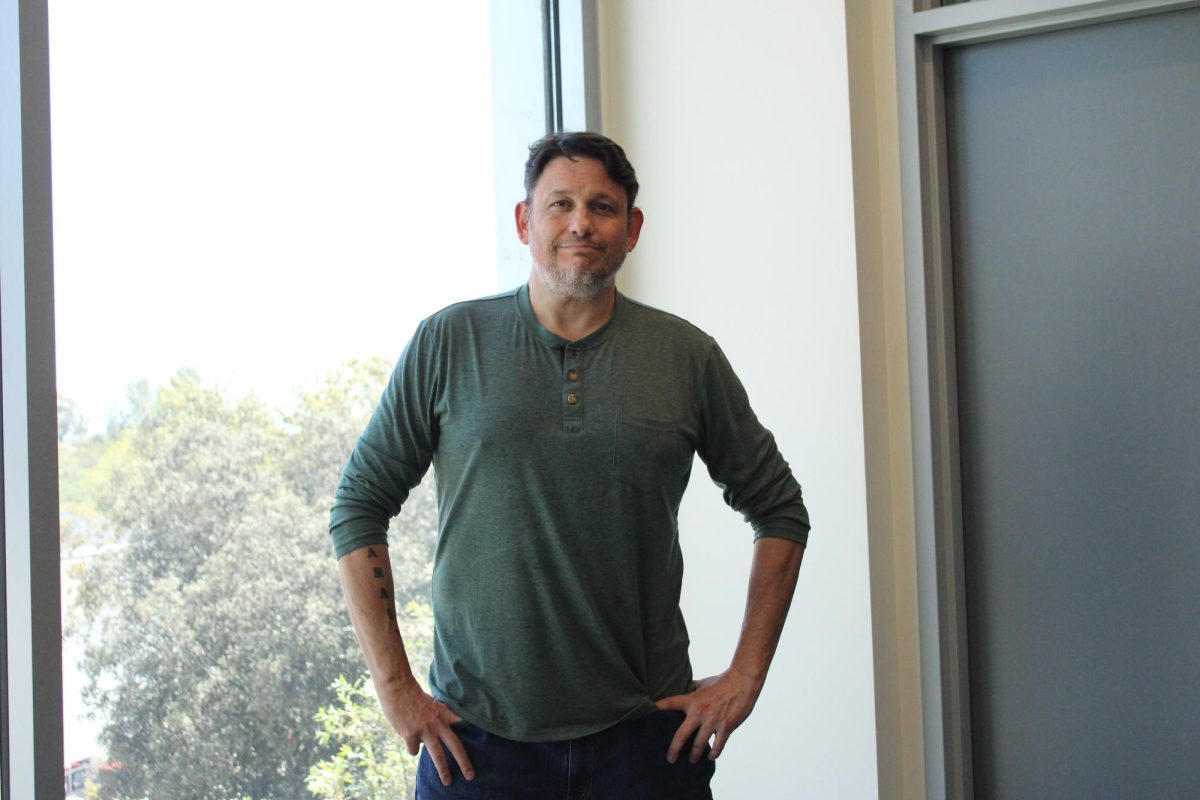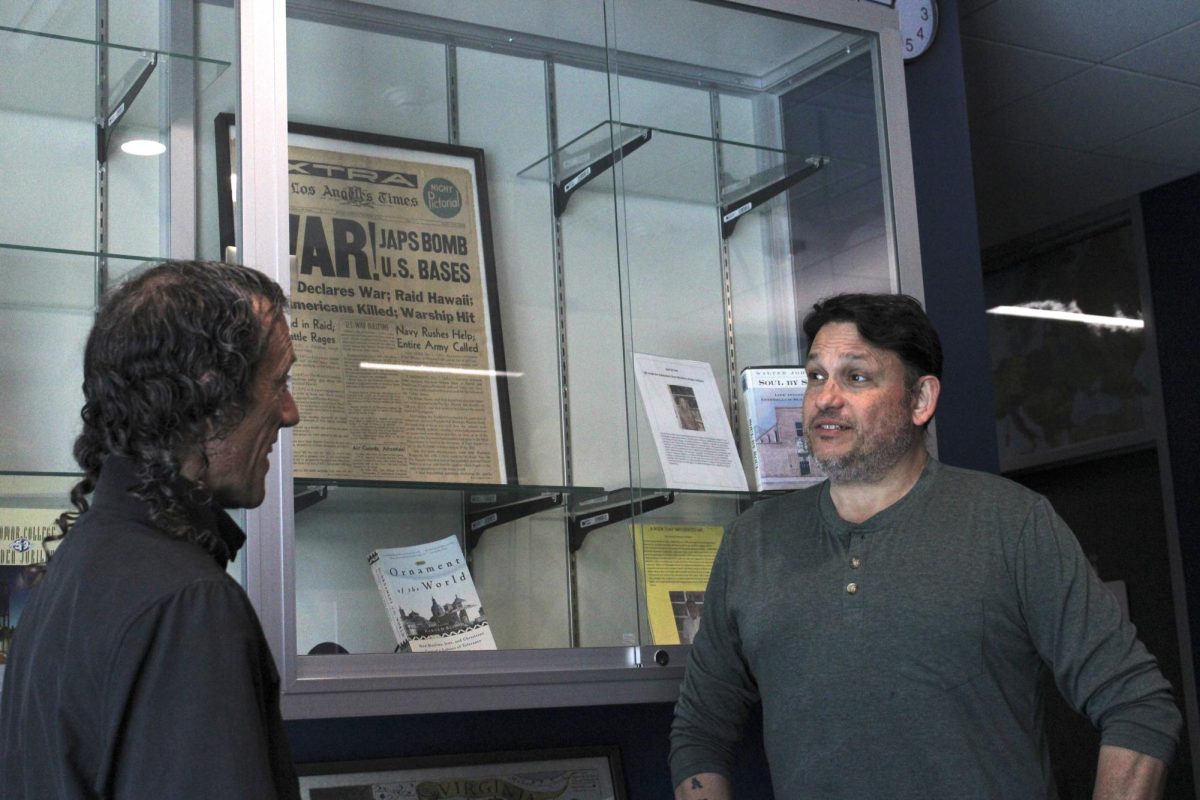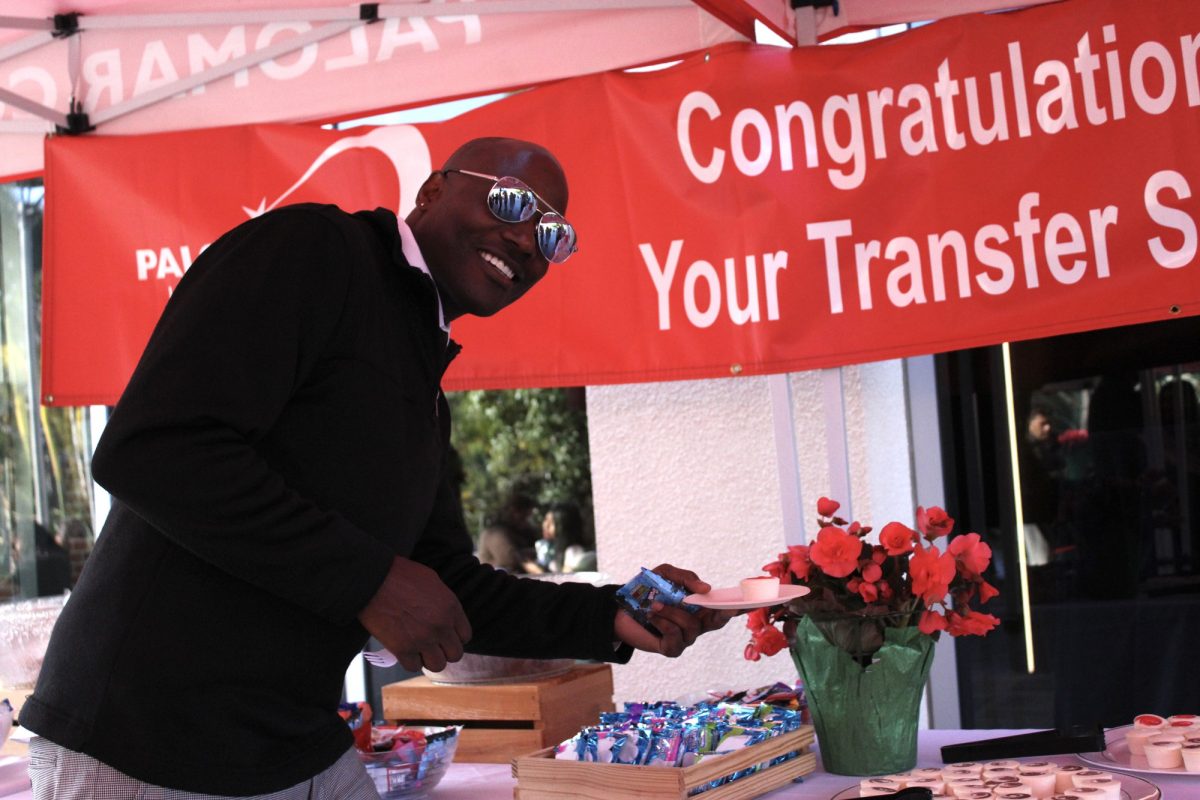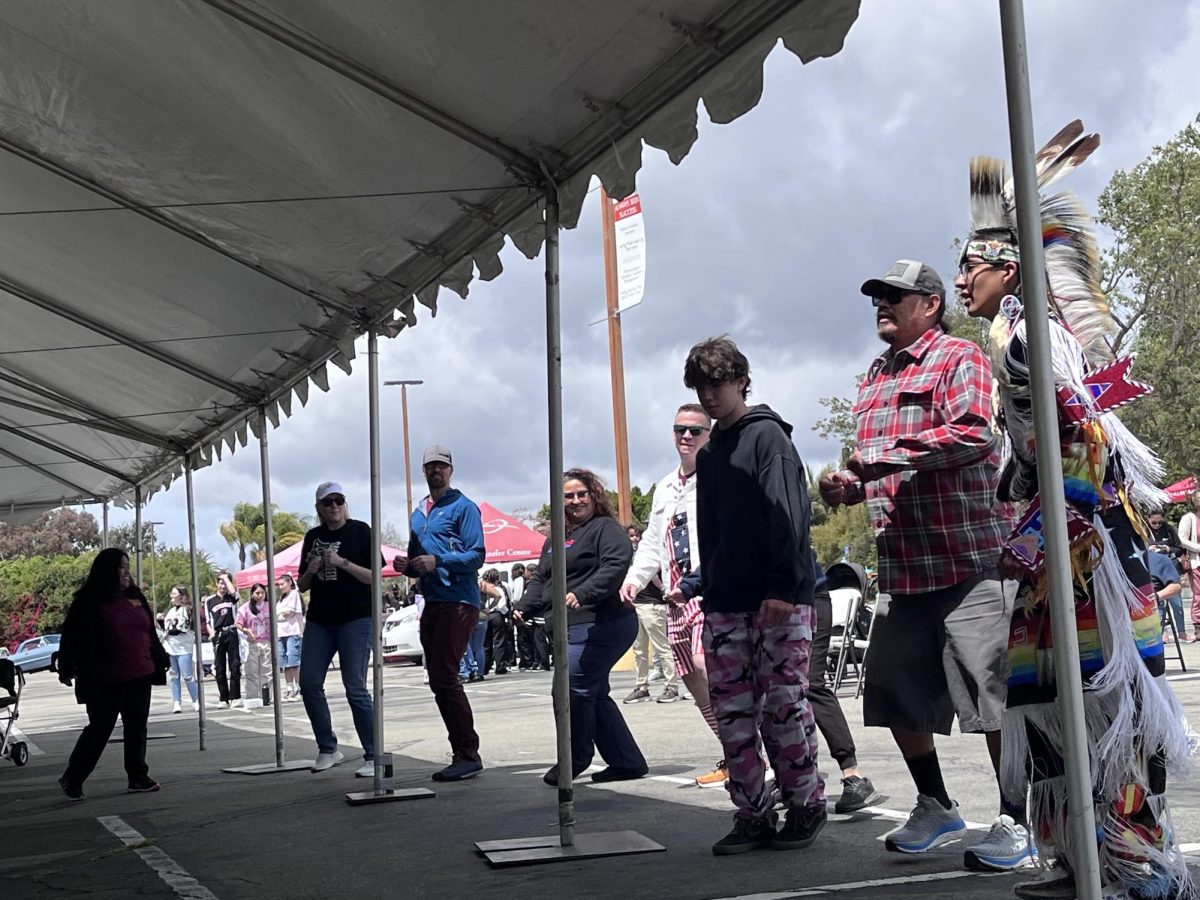The Teaching and Learning Center recently launched a program to familiarize new students with the many resources offered on campus.
The Village Mentoring Program pairs First-Year Experience students who are taking their first credit classes at Palomar College with students, staff, administrative and faculty mentors.
The program was advertised to incoming First-Year Experience students prior to the Fall semester. Of the nearly 300 students, 100 of them initially expressed interest and 25 actually applied for the program, according to Lawrence Lawson, faculty resource coordinator and overseer of the Village Mentoring Program.
Joselyn Ramirez Ortega, 18, heard about the program when she attended her First-Year Experience orientation one week before classes began. She applied because she had never had a mentor before and wanted to know what it would be like.
Students and mentors meet a minimum of three times during the semester. The nature of the meetings may range from discussing how classes are going to receiving support for campus services.
Ramirez Ortega said she expects her mentor meetings to contain “bonding time with a relaxed atmosphere,” she said in an email. She hopes that her mentor becomes someone she can trust and go to for advice.
According to its mission statement online, the program “seeks to enhance the retention and completion rates of First-Year Experience students by facilitating intentional, integrated, collaborative and academic support.”
Lawson explained that when students are supported by a mentor early in their academic career, they are more likely to participate in class, earn high GPAs and return for future semesters.
“It gives them an opportunity to learn about those free resources that can help them,” he said. “Basically, they’re going to save time and save money because by knowing about those resources that help them improve academically, they’re more likely to pass their classes. They don’t have to take them again and they can get moving on their track.”
Lawson also stressed the importance of community and diversity within the program.
“It has to be a group effort,” he said. “We need to have all pieces of the campus involved.”
The program has accepted mentors from a wide range of areas on campus. The list of faculty mentors even includes three deans. While becoming a mentor is open to all returning students, current student mentors come from backgrounds in the Associated Student Government, Phi Theta Kappa or the First-Year Experience program. Potential mentors must complete a safety training course before they are matched with a student.
Mentors began meeting with their matches earlier in September. The program has already exceeded its target number of participants and Lawson was optimistic about the results thus far.
“We always want to scale up,” he said. “Right now it’s serving First-Year Experience students and if that’s successful this year and next year, it would be nice to make this campus-wide.”
Students who are interested in being mentored or becoming mentors can complete an application online. For more information, visit www.palomar.edu/villagementoring.

